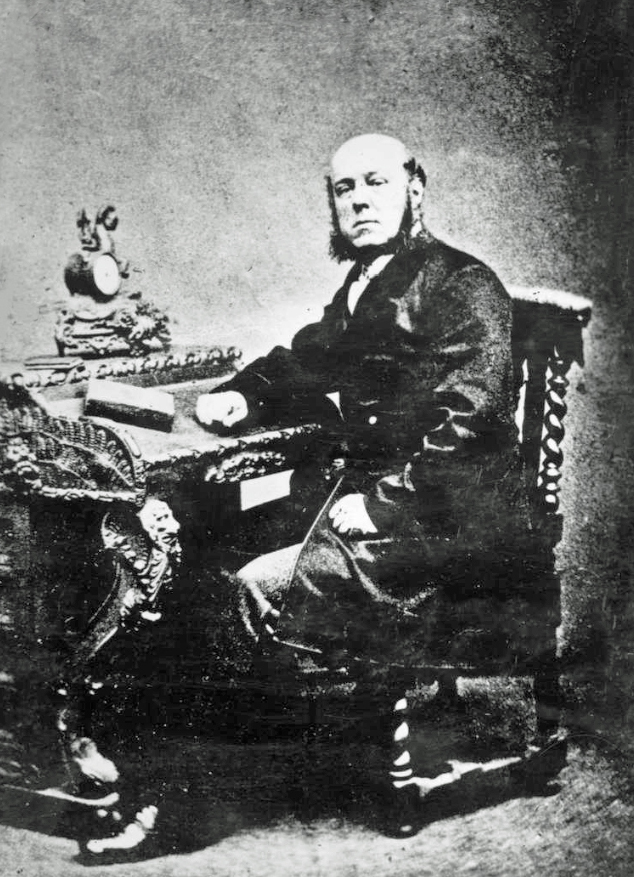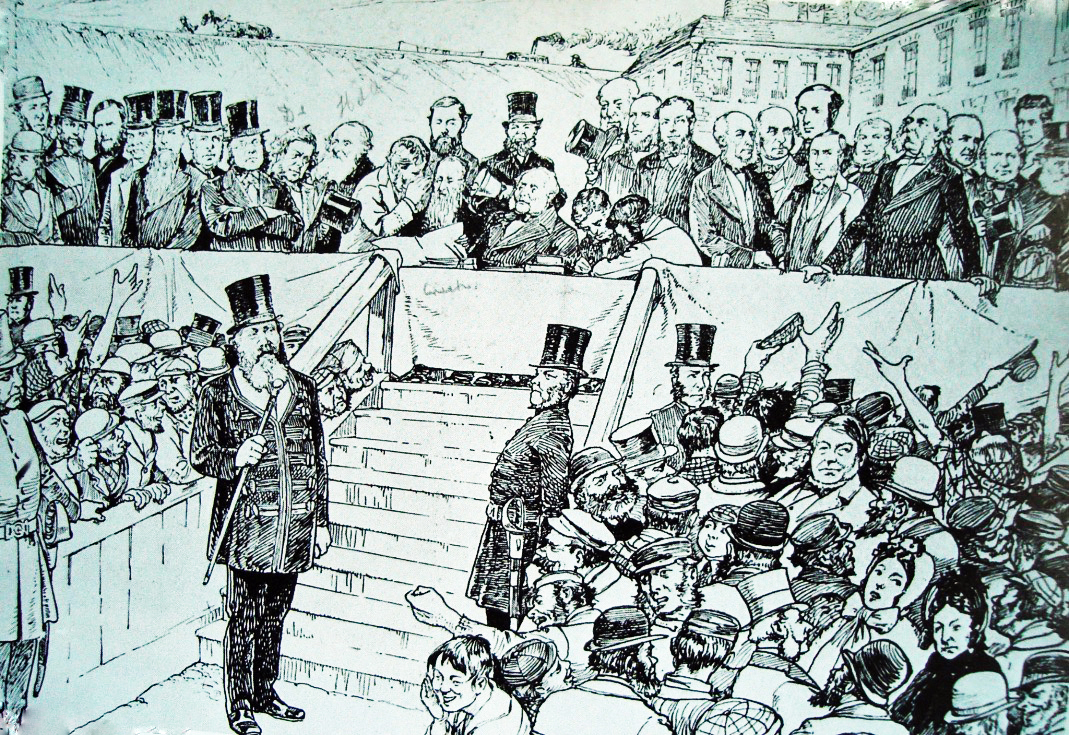Richard Shaw MP for Burnley 1868-1876

Richard Shaw Burnley's First MP
Richard Shaw was born in Manchester Road in 1825, and was the sone of Richard Shaw, solicitor of the firm Shaw and Artindale. he received his education at Burnley Grammar School and at St. Peter's School,York. In 1850, some few years after he had joined the firm of which his father was a partner, he married Miss Maria Dugdale. He built Holme Lodge Rossendale Rd., Burnley, now Rose Grove Unity W.M. Club. Like his father, he was a solicitor, and was appointed County Court Circuit 3 Registrar. He was later associated with cotton and mining companies, in particular Dugdales of Lowerhouse. He was churchwarden and benefactor of Holy Trinity Church. When Burnley was enfranchised as a Parliamentary Borough he was asked to stand as the Liberal candidate against the Conservative candidate, Gen. Scarlett. Shaw was duly elected by a majority of 382. The second election took place in 1874 on the dissolution of Parliament. The Conservatives were totally unprepared. Then it was found that no copies of the register of voters could be obtained as friends of Shaw had bought all the copies. After a gallant fight Shaw again won by 576 votes. He died in office in 1876 after an unsuccessful operation for throat cancer.
1868 Burnley's First Parliamentary Election - An eyewitness account
The first Parliamentary election in Burnley was in 1868. Two years before, Lord Russell had introduced a Reform Bill, but it was rejected, and he resigned. Lord Derby came into power, with Disraeli as Leader in the Commons. This Conservative Government found itself forced to pass a Reform Bill in 1867. The Bill gave the franchise to all ratepayers and lodgers whose rooms were of, an annual value of 12 pounds. Thirty-three Members were transferred from rotten and pocket boroughs to towns with better claims. Till then Burnley, though it had near 30,000 inhabitants, had no Member of Parliament.
The great, day of nomination came, and the whole town rose to make it a red-letter day. The candidate selected by the Conservatives was the hero of the "thin red line," commander of the Heavy Brigade at Balaclava, Sir James Yorke Scarlett, of Bank Hall, one of the oldest homes in the district. His name and doings are preserved in a poem of Tennyson's. Locally, he was respected and honoured as a brave soldier and a fine old English gentleman. His wife belonged to the wealthy family of Hargreaves, coal mine owners, employing hundreds of men. One of your chief streets is named after tbt family.
Scarlett was a churchman, and received strong support from that direction. Then was an active volunteer force in the town? the old 17th?and the General had always taken a deep interest in it. As a youth I was on the waiting list as bugler, and my brother Charles was not only a lead cornet with Johnny Ford, but bugle major, and on all field days attended the General. He was the strongest candidate the Conservatives could bring out, and everything seemed in his favour.
The gentleman selected to lead the Liberal Party was Richard Shaw, a cotton spinning mill owner. Until the election he was scarcely known. He was a good-looking, well-set-up man, keen and ready, well-informed, and an' excellent speaker.
The Hustings

For nomination day the hustings, something like a football grandstand, divided down the middle, were set up in the New Market Place, a newly-acquired open space for fairs, circuses, and, travelling theatres. Many thousands of people gathered in front of the hustings, each party facing its own half of the stand. Where the supporters fell in I don't know, perhaps near the Bull and Red Lion.
There is a movement in - the crowd, and two processions of supporters make their way to the stands. They are linked arm-in-arm and walk three abreast. When all are ready and the order of speakers is arranged a supporter of one candidate rises, and for about 15 minutes sets forth the policy and qualifications of the one he favours. He finishes by moving that Sir James Yorke Scarlett is a fit and proper person to represent the Borough of Burnley in Parliament. This is seconded in another speech. The same thing takes place on the other side. The gentleman presiding puts the issues to the crowd and calls for a show of hands. If he makes a declaration in favour of one side the other side demands a poll, and the meeting then breaks up.
Knuckles and Fists. When polling day arrives there are signs of commotion and keen "interest all through the town. Great numbers are wearing the party favours; blue for Scarlett, and red and green for Shaw. As we pass some public-houses we notice that business is unusually brisk. The fact is that the "Blues" have arranged for a number of free or open houses. Many who show signs of coal-dust on clothes or persons having a great time, and are getting ready to exhibit their Dutch courage, with fists and clogs, on their opponents. Up and down the streets tramp little mobs of ten or twenty brawny men, eager for anything. Coal-dust and cotton-fluff are prepared to back their opinions with knuckles and clogs, and before the day is out black eyes and broken heads are plentiful.
The "Red and Greens," in solid mob, march up Bankhouse-street. A similar mob of "Blues' comes along North-parade. The mobs, right and left, wheel at the junction, and every man takes the man in front of him. Right and left-hooks and clogs are again in action with considerable effect, and the fallen stretch across the road. At another point, near Zion Chapel, a man with an open knife pursues another, who, fortunately for both, makes good his escape. Near the Park Tavern a poker cracked a crown, and a doctor was needed.
As the day wore on the roughing got worse, and next day there were many unfit either to throw the shuttle or use the pitman's pick. But most of the weavers were smiling, and did not mind their bruises, for Mr. Richard Shaw was the first M.P. for Burnley. He held the seat for several years, then at his death Peter Rylands, a great temperance and social worker, was elected.





